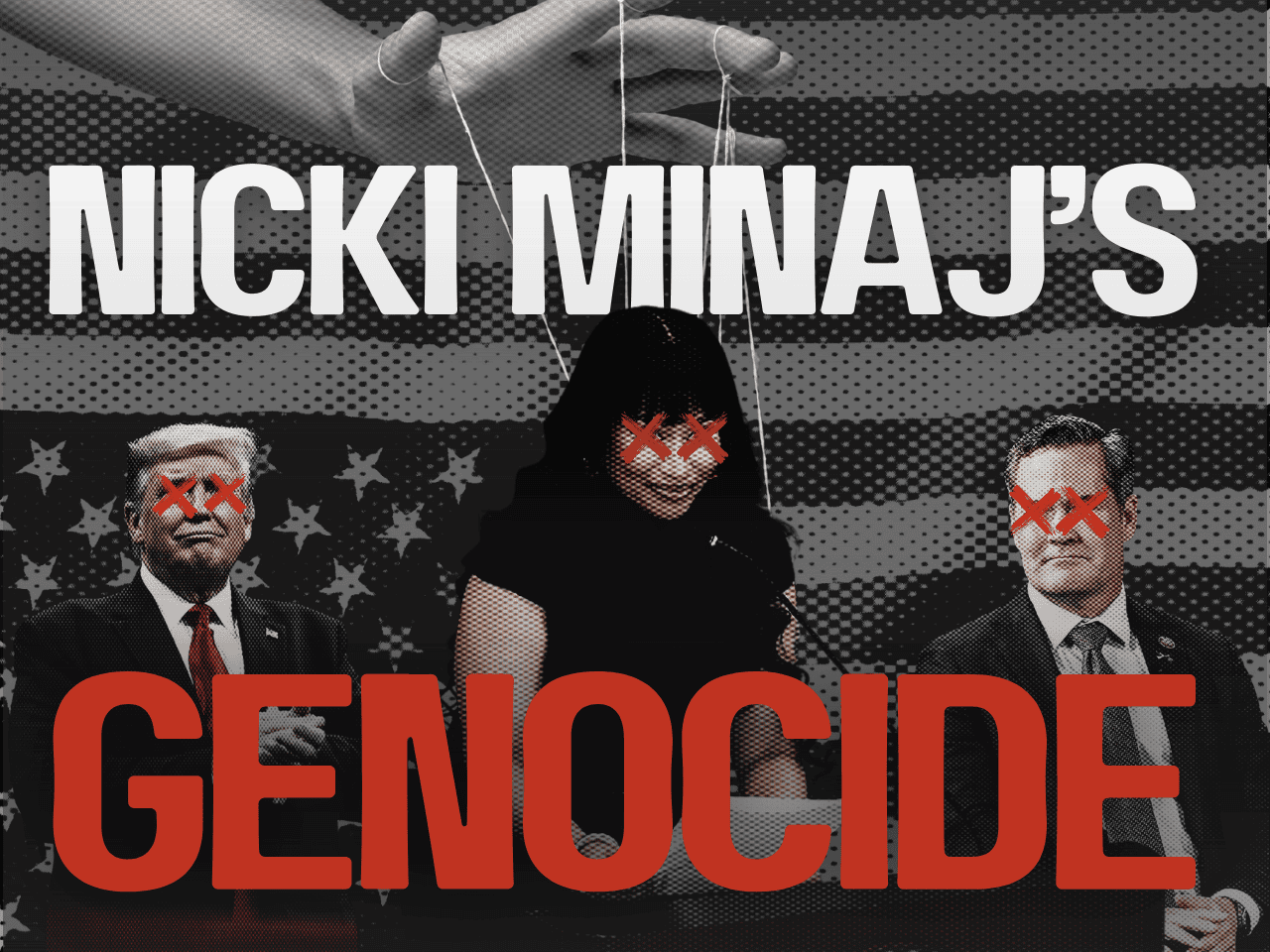Whenever we think we have seen it all, something like Nicki Minaj addressing the United Nations about “genocide” of Christians in Nigeria happens. Minaj spoke at a panel at the US mission to the United Nations, along with US Ambassador Mike Waltz and US “faith leaders”, on Tuesday 18 November to “shine a spotlight on the deadly threat”, while thanking Donald Trump for his “leadership” on the matter. Trump recently announced that US troops might be sent to Nigeria to protect Christians in that country from what he also called a “genocide”.
Persecution of Christians, like persecution of any faith, ethnic or other group, obviously needs to be acted against. However, Nigerians from practically all sections of society -minus the one organisation that has been Minaj’s and the Trump administration’s source- have explained that many population groups suffer many forms of violence in that country, and that factors like poverty, scarce resources, survival and weak governance are key. See our brilliant op-ed by Premium Times’ Beloved John on the matter.
The Christian persecution narrative, often -like in Nigeria- coupled with an accusation against ‘jihadi’ Islam, has come up in tandem with the rise of US evangelism on the African continent. US evangelical networks, which generally support the Trump administration, have been increasing their efforts to befriend and influence African leaders and to spread campaigns to roll back women’s reproductive rights as well as gay and trans rights, while promoting a hierarchical patriarchy. In her book ‘Power and Faith’ South African Pontsho Pilane describes her journey as a member of what initially seemed to be a benign multiracial Christian community, and her in-depth research into its real nature after leaving what she calls “The Family”. Read an interview with her here.
Mozambican researchers have also recently warned against a simple narrative of religious persecution where many social factors are at stake. In its lead, the just-released IntelWatch report (see also ZAM recommends) says that framing the military insurgency in the north of that country as ‘jihadist’ is “dangerously insufficient” and points to factors like a “fractured state” and a “neocolonial extractive economy.”
If the world is ever to address the exploitation and inequality that underlies rage like in northern Nigeria and Mozambique, we should heed the point made by these experts as well as by the tens of thousands of affected citizens. Africa deserves better than imported narratives that flatten complex realities.
Team ZAM
Call to Action
Working towards a new relationship of equality between Africa and Europe, ZAM platforms African investigation, activism and creativity that challenges exploitation, white supremacy and the erosion of democratic rights. Donate here.


